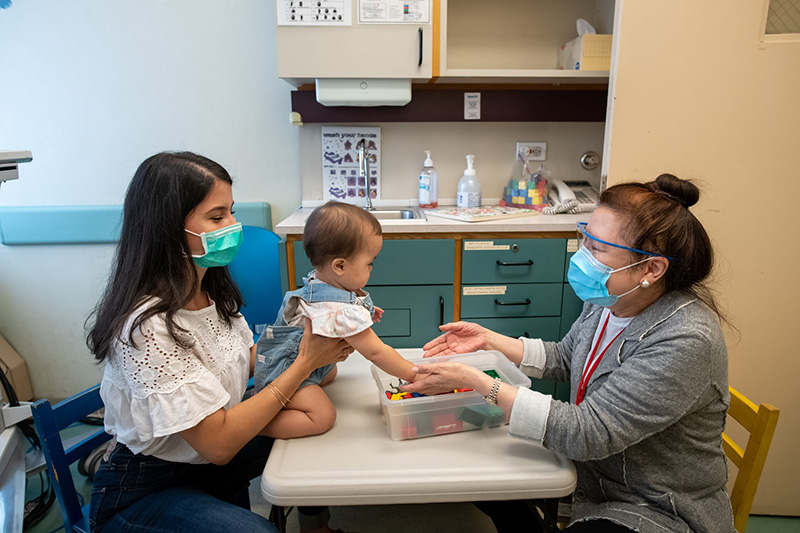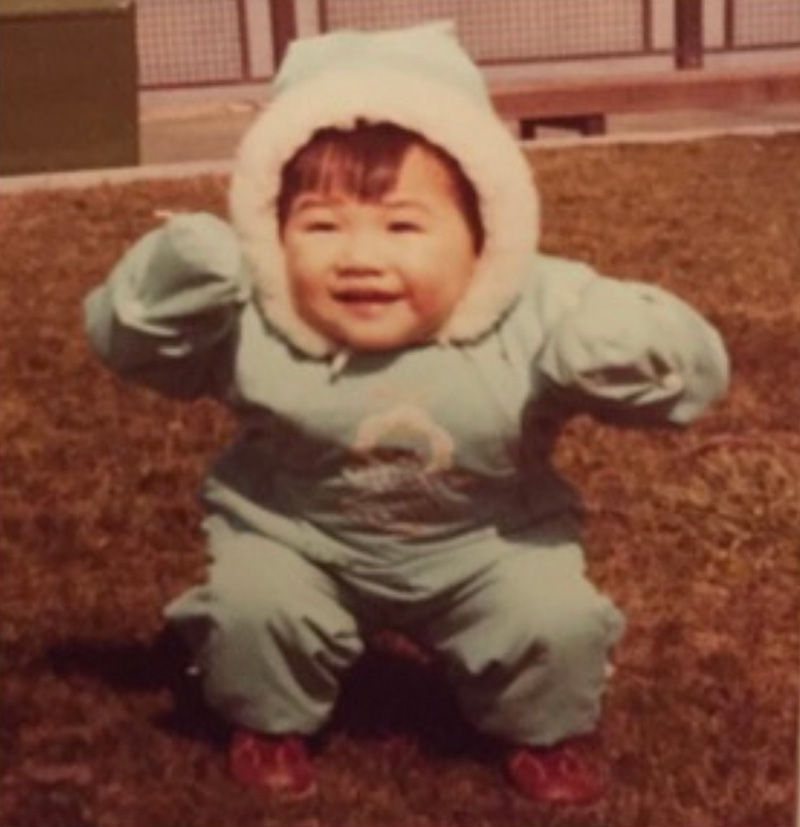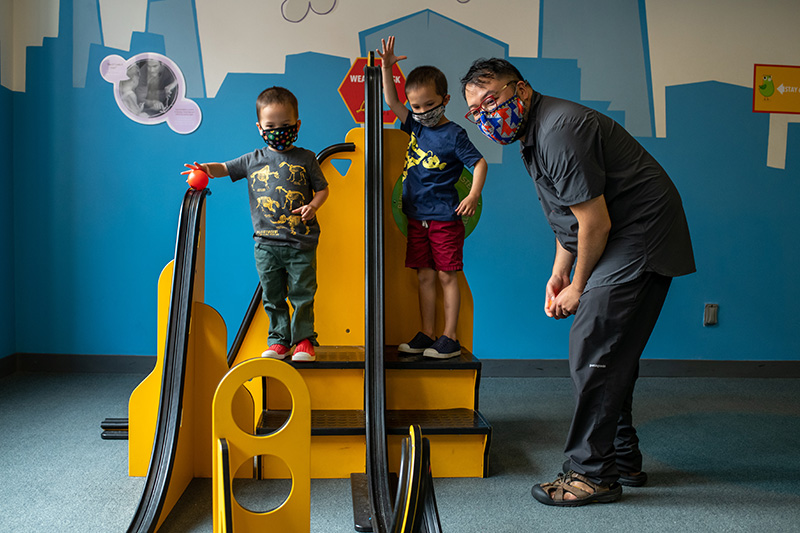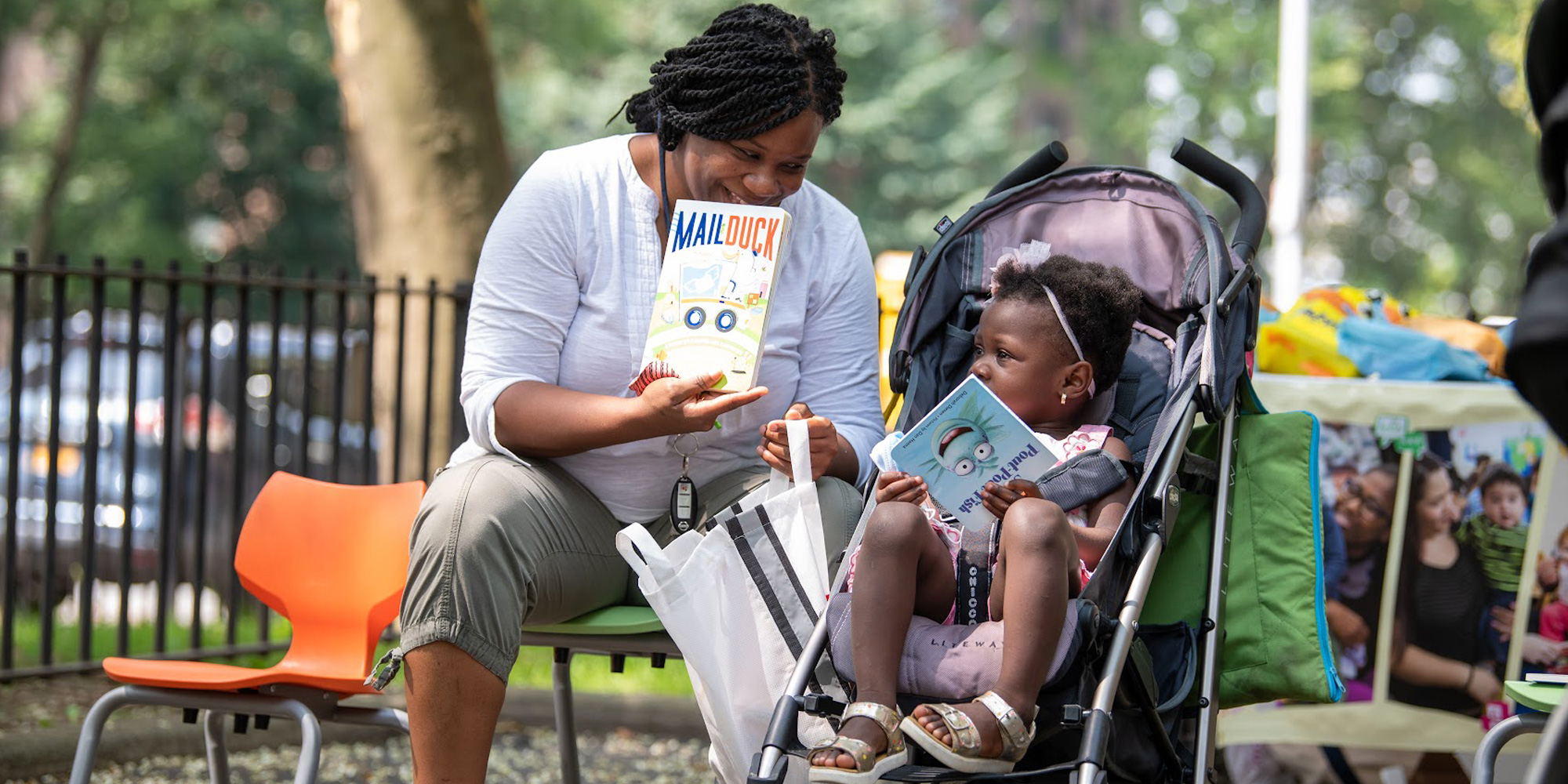Shortly after Kelvin Chan, PhD, managing director of Early Childhood at Robin Hood, gave a SXSW presentation on Fund for Early Learning (FUEL), I spoke to him about the initiative and its impact.
MARK SWARTZ: Why did Robin Hood launch FUEL in 2016?
 KELVIN CHAN: Our greatest and most critical developmental stage takes place between infancy and age three. This short window is where we are set up for success for the rest of our lives. Today, New York City is home to at least 100,000 children ages 0-3 who are living below the poverty line—these children are extremely vulnerable to the damaging effects of the stresses of poverty. This is why we must invest in and improve every element of our society that interacts with our young children. The opportunity to lead the incredible work of FUEL is truly a career highlight for me and my team to bring about scientifically grounded, data-driven, culturally responsive approaches that quantifiably promote early learning and development in 0-3’s.
KELVIN CHAN: Our greatest and most critical developmental stage takes place between infancy and age three. This short window is where we are set up for success for the rest of our lives. Today, New York City is home to at least 100,000 children ages 0-3 who are living below the poverty line—these children are extremely vulnerable to the damaging effects of the stresses of poverty. This is why we must invest in and improve every element of our society that interacts with our young children. The opportunity to lead the incredible work of FUEL is truly a career highlight for me and my team to bring about scientifically grounded, data-driven, culturally responsive approaches that quantifiably promote early learning and development in 0-3’s.
SWARTZ: What is FUEL’s goal?
CHAN: We aim to turn New York City into an early learning metropolis where low-income families can give children the best possible start to their lives. FUEL uses the science of early brain development to find and fuel innovative and sustainable programs to support children ages 0-3.
SWARTZ: How is it going so far?
CHAN: To date, FUEL has dedicated over $50 million to promote infant and toddler language, and socioemotional and cognitive skills, by focusing on catalyzing community-grounded and systems-level changes to disrupt the intergenerational transmission of poverty, inequity and injustice. Since its inception, FUEL has successfully transformed government systems to lay the groundwork for systems change in support of our youngest children.
SWARTZ: What are some examples of impact?
CHAN: In partnership with NYC Health + Hospitals—the nation’s largest public safety net hospital system—FUEL’s 3-2-1 Impact program is integrating health care systems by bringing an intergenerational approach to health care to integrate mental health, pediatric and maternal health care to improve outcomes for mothers and babies from pregnancy to birth and beyond. FUEL is also improving child care quality through a partnership with Youth Research, Inc. and the New York State’s Office of Children & Family Services, building out equitable support systems for child care providers to deepen the sector’s capacity to provide high quality, responsive care to the youngest New Yorkers.
SWARTZ: What other partnerships are showing promise?
CHAN: FUEL supported a pilot program with the NYC Department of Homeless Services and the MOMS Partnership at Yale University, to bring mental health supports to over 100 mothers in shelters across the city. The goal is reducing depressive symptoms in caregivers and improving child functioning. We’re also leveraging relationships with the Brooklyn Public Library and the Children’s Museum of Manhattan, reaching into all five boroughs and working in partnership with the Department of Homeless Services to build out learning environments for 18,000 children living in shelters through Baby Brain Building Hubs.
SWARTZ: Robin Hood just announced the first awardees of the FUEL for 50 initiative (read more). What is the objective?
CHAN: We aim to support young children’s learning and development through programs focused on their parents and caregivers. In March of 2022, we awarded 50 organizations with $25,000 in unrestricted funding, access to expert workshops and support, and opportunities for up to $1 million in funding over the next two years. All in all, we’ve reached over 72,000 New York City families, but we have plenty of work left to do.
SWARTZ: In what ways does your FUEL work make you reflect on your own upbringing?

CHAN: My passion and dedication for promoting quality early learning and equity for children and families stem from personal experience of high-quality early learning. I grew up in squalor in New York City’s Chinatown. From birth, “home” was a one-bedroom railway apartment in a tenement building, where my mother, father and seven other adults—including my paternal grandparents, aunts and uncles—were stacked on top of each other every day and night. Nevertheless, my family sang to me, told stories and buffered me from the stressors of poverty, racism and injustice.
To this day, I fondly remember the names of my Head Start teachers—Yolanda and Ramona. To me, they are exemplars of what it means to be attuned, warm, responsive and nurturing early care and learning professionals. Despite the poverty and racism that characterized the socioeconomic tensions of the Lower East Side of NYC in the 1980s, Yolanda and Ramona created a veritable oasis for me and the lucky few they cared for to thrive in. In their classroom, the challenges of my family circumstances melted away so that I could finger-paint with abandon, sing new songs in English and in Spanish, and make friends with people outside of my Cantonese bubble! Most of all, under Yolanda and Ramona’s care, I never felt ashamed of who I am; embarrassed about being poor; or frustrated with my interactions in an English-speaking environment as a, then, strictly monolingual Cantonese kid.
SWARTZ: What’s next for FUEL?

CHAN: FUEL 2.0 will focus on large-scale systems change, drawing on the groundwork laid out with FUEL 1.0, so that children 0-3 are supported physically, mentally and emotionally; prepared for kindergarten and beyond; and poised for economic mobility from poverty. We’ll continue focusing on bringing a child-centered approach to any and all institutions that support parents and caregivers so that New York City adults are poised to provide the strongest foundation for the children in their lives.
We’ll also work to tackle inequities in home-based child care and fund professional development for those providers so that every child has access to high-quality care. And, finally, we’ll work to influence and leverage city and state budgets and funding to scale early childhood interventions because we know that the most impactful investment we can make is the one we make earliest in a person’s life cycle. Our goal is to double our reach to 120,000 children and families in New York City over the next five years. And, ultimately, to redesign the early childhood landscape in New York once and for all.

Mark Swartz
Mark Swartz writes about efforts to improve early care and education as well as developments in the U.S. care economy. He lives in Maryland.



